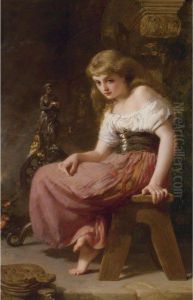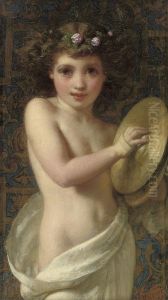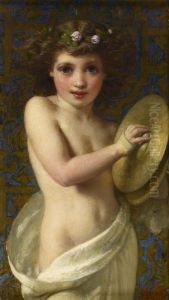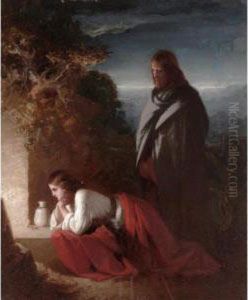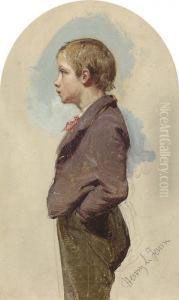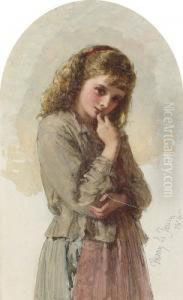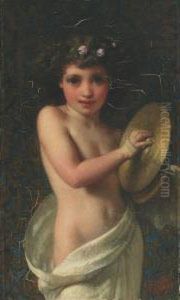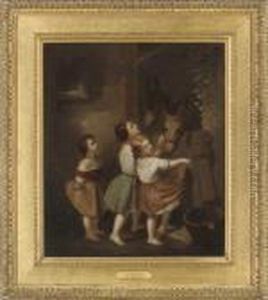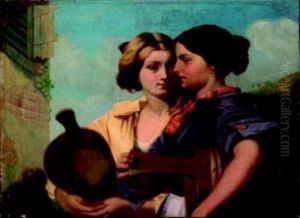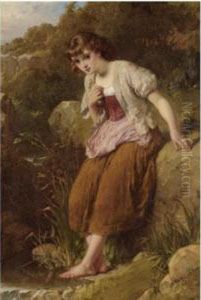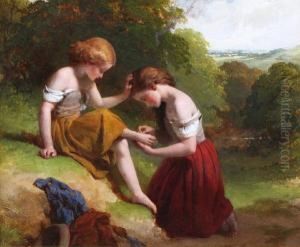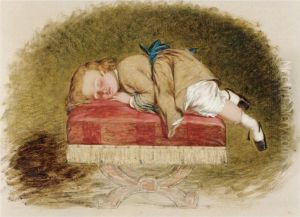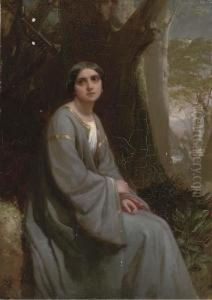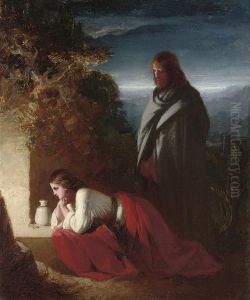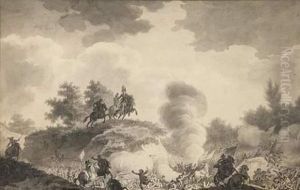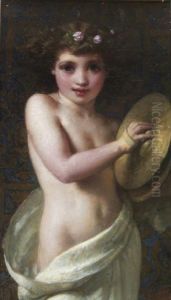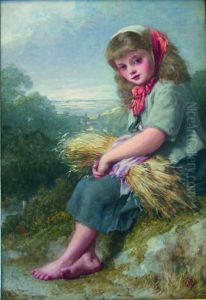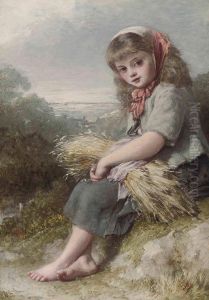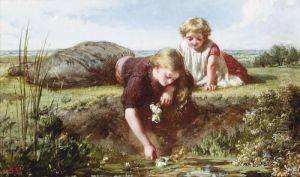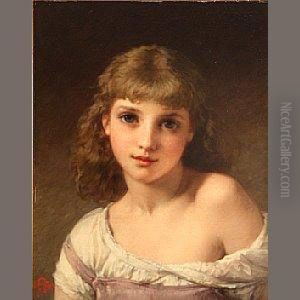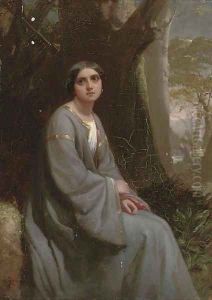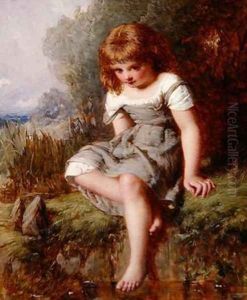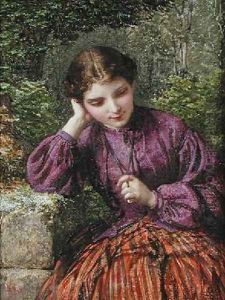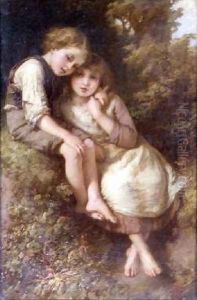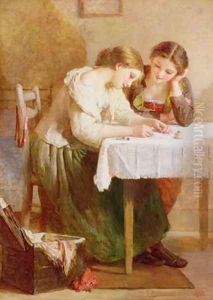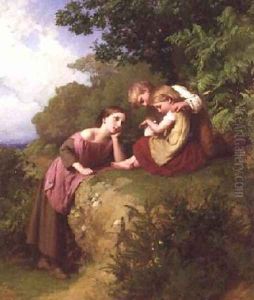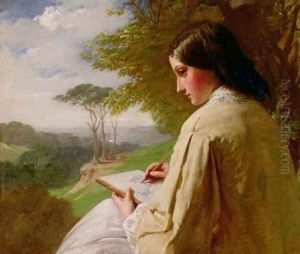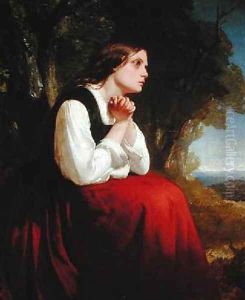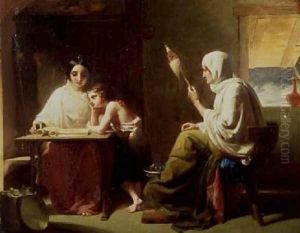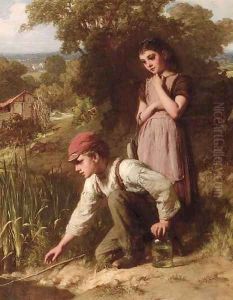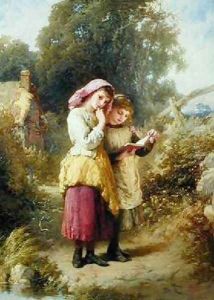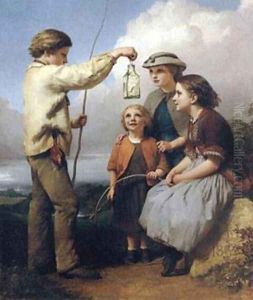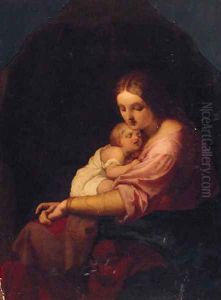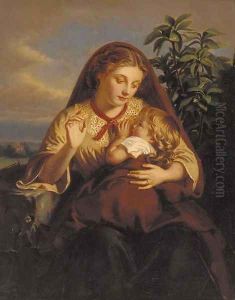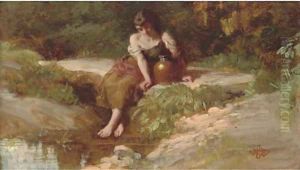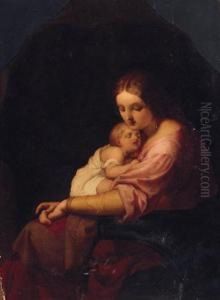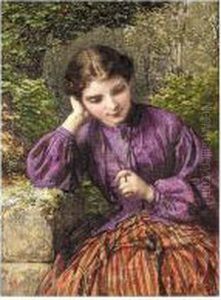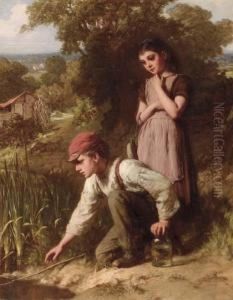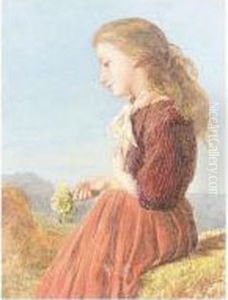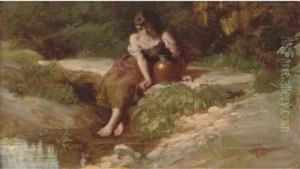Henry Le Jeune Paintings
Henry Le Jeune was a notable British painter and engraver born in London on December 18, 1819. He was recognized for his genre paintings, historical scenes, and portraits. Le Jeune's artistic talent became evident early in his life, leading him to study at the Royal Academy Schools where he won the prestigious Silver Medal for drawing in 1836, followed by the Gold Medal for historical painting in 1840.
His education at the Royal Academy laid the groundwork for a successful career. Le Jeune was a prolific artist whose works were regularly exhibited at the Royal Academy from 1834 to 1886. His painting 'The Early Lesson' received significant acclaim and helped establish his reputation as a genre painter depicting scenes of everyday life with a focus on children and domestic activities.
Le Jeune was also known for his religious and historical paintings. His work 'The Conversion of St. Augustine' is one of his notable religious-themed pieces. He didn't confine himself to these themes, however, as he also explored landscapes and portraiture, showcasing a versatile range of subjects in his oeuvre.
Throughout his career, Le Jeune was involved in the art community, becoming an Associate of the Royal Academy (ARA) in 1863 and a full Royal Academician (RA) in 1870. His contributions to the art world extended beyond his paintings; he also served as the Headmaster of the Government School of Design at Somerset House, where he influenced a new generation of artists.
Henry Le Jeune passed away on June 5, 1904, in London. His works remain in various collections and continue to be appreciated for their delicate depiction of Victorian life and historical accuracy.
